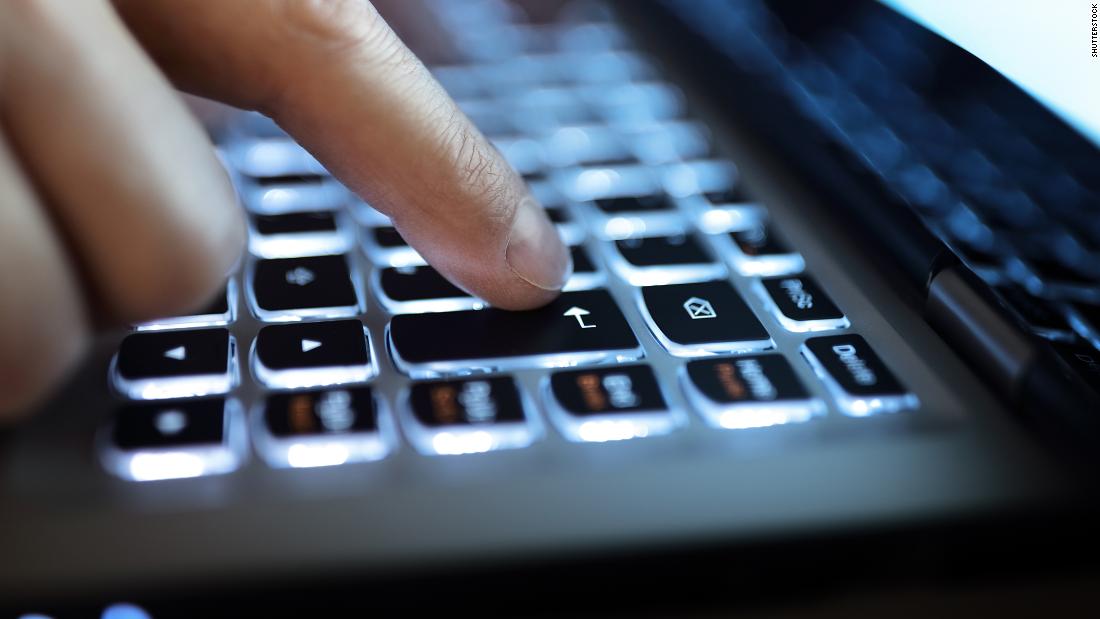It doesn’t have to be this way. Fake information is truly truly easy to spot — if you know how. Contemplate this your New Media Literacy Guide.
1. Does the tale arrive from a odd URL?
Zimdars states websites with peculiar suffixes like “.co” or “.su,” or that are hosted by third party platforms like WordPress should really raise a red flag. Some pretend web pages, like Countrywide Report, have legitimate-sounding, if not overly general names that can very easily trick persons on social web sites. For instance, several faux studies from abcnews.com.co have gone viral ahead of getting debunked, like a June write-up that claimed President Obama signed an buy banning assault weapon profits.
2. Does the headline match the details in the posting?
Mantzarlis suggests 1 of the most significant factors bogus news spreads on Facebook is mainly because people get sucked in by a headline and really don’t bother to click on by means of.
Just this 7 days, a number of dubious corporations circulated a tale about Pepsi CEO Indra Nooyi. “Pepsi Inventory Plummets Following CEO Tells Trump Supporters to ‘Take Their Company Elsewhere’,” trumpeted just one these types of headline.
3. Is it a modern story, or an old a person that has been re-purposed?
Often authentic news stories can be twisted and resurrected a long time right after the fact to build a false conflation of functions. Mantzarlis remembers an erroneous story that essentially cited a legitimate piece of information from CNNMoney.
A web site named Viral Liberty lately described that Ford had moved manufacturing of some of their vehicles from Mexico to Ohio since of Donald Trump’s election earn. The tale promptly caught hearth online — immediately after all, it appeared like a terrific win for the domestic car marketplace.
4. Are the supporting movies or images verifiable?
Pics and movies can also be taken out of context to support a bogus claim. In April, the liberal web page Occupy Democrats posted a movie that purportedly showed a young lady having taken off from a rest room by police for not looking feminine adequate. This was for the duration of the peak of the HB2 “rest room monthly bill” controversy, and the article plainly linked the two. “IT Commences,” examine the headline.
Nonetheless, there was no day on the movie or evidence that it was shot in North Carolina, wherever the “rest room invoice” was to be handed.
5. Does the short article cite most important sources?
It’s not just political news that can be bogus. Now8Information is one of the most notorious faux-but-appears to be-authentic website, specializing in the type of unusual news stories that typically go viral.
Irrespective, the article experienced no statement or assert from any firm. Evidently this would be a massive story. Dasani or any selection of buyer advocacy teams would publish statements or information releases about it, proper? There are none to be found — simply because the story is 100% bogus.
6. Does the tale aspect estimates, and are they traceable?
A favourite meme of Liberal Fb teams functions a pretend quote from Donald Trump that is allegedly from a Folks Magazine interview in 1998:
“If I ended up to operate, I would run as a Republican. They’re the dumbest group of voters in the nation. They imagine something on Fox News. I could lie and they’d continue to take in it up. I bet my quantities would be wonderful.“
7. Is it the only outlet reporting the story?
Throughout this election time, Pope Francis was roped into three tremendous viral, and fully phony, stories. According to different (fake) internet websites, the Pope endorsed 3 US Presidential candidates: Very first, Bernie Sanders, as “documented” by Countrywide Report and USAToday.com.co. Then, Donald Trump, as “noted” by bogus news internet site WTOE 5 Information. Lastly, a different fake news site KYPO6.com claimed he had endorsed Hillary Clinton!
In all of these circumstances, subsequent studies all circled again to the phony types. It is really usually good to trace a story back to the initial supply, and if you obtain on your own in a loop — or if they all guide back again to the same dubious web-site — you have explanation to question.
8. Is your own bias getting in the way?
The two Zimdars and Mantzarlis say confirmation bias is a big explanation bogus information speads like it does. Some of that is crafted into Facebook’s algorithm — the a lot more you like or interact with a specific fascination, the extra Facebook will clearly show you similar to that desire.
Similarly, if you hate Donald Trump, you are much more very likely to imagine destructive stories about Donald Trump are genuine, even if there is no proof.
“We find out information that presently fits with our founded beliefs,” says Zimdars. “If we arrive into get in touch with with information and facts we do not agree with, it still might reaffirm us due to the fact we will endeavor to come across faults.”
So if you obtain an outrageous article that feels “too fantastic to be accurate,” use warning: It just could possibly be.
9. Has it been debunked by a dependable truth-checking organization?
10. Is the host on a checklist of unreliable news sites?
Even though Zimdars is happy her record has gotten so considerably notice, she also cautions that wholly writng off some of the internet sites as “phony” is not precise. “I want to make absolutely sure this list will not do a wonderful disservice to the greatest objective,” she states. “It can be appealing that some of the headlines [about my list] are just as hyperbolic as the kinds I am analyzing.”

